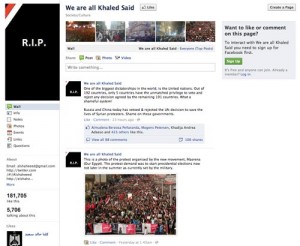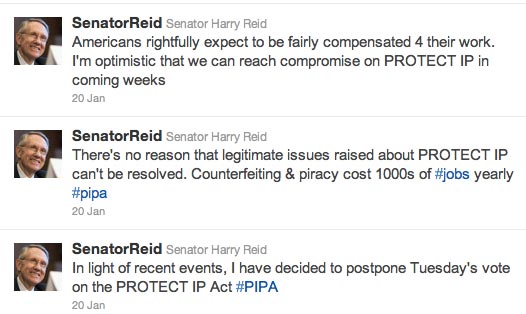Social media derails SOPA/PIPA bills
David Hensley
The Signal
In 2011 the dictatorship of Egyptian president Hosni Mubarak fell as a result of a rebellion fueled by social media. The past year has seen the political landscape of the Middle East change dramatically since the Arab Spring began.
The power of social media flexed its muscles again Jan. 18 when more than 7,000 websites, such as Mozilla, Google and Reddit participated in a protest against two proposed bills: the Stop Online Piracy Act (SOPA) and the Protect IP Act (PIPA). Wikipedia went dark for 24 hours, blocking users from accessing its information and only allowing access to a website with information on the SOPA and PIPA bills.
The websites shutting down sparked millions of Americans to become aware for the first time about the SOPA and PIPA bills; as social media sites were bombarded with public opinion.
The activist site Electronic Frontier Foundation (EFF), a nonprofit organization that deals with issues like defending free speech, privacy and consumer rights in cyberspace, provides litigation services to help establish and defend the rights of the digital world.
“I think the day of action was huge,” said Rebecca Jeschke, media relation’s director and digital rights analyst for EFF. “It was the culmination of months and months of work by activism organizations like ours. We thought that the tide was turning before the blackouts, and we felt like we could get the bills derailed. But the blackouts sealed the deal.”
As a result of the public’s overwhelming negative response, legislators chose to table the SOPA and PIPA bills until they could be re-examined.
“Communication and free expression are powerful tools for social change; they spread new ideas and can help coordinate activism of all sorts,” Jeschke said. “Technology that facilitates this is a great thing. Right now, social media is a tool that many people are using. Next year, five years from now, or ten years from now, it may be another tool. One of the reasons that we feel so strongly about SOPA and PIPA is their potential to nip new innovation in the bud. If overreaching copyright claims squash new platforms before they grow and develop, we’ll never know what we’ve missed.”
Social media specialists speculate about the effectiveness of using social media as a tool for social change.
“Yes, it is currently being used to co-create new economies, new government, new ways of thinking about society, education, activism, disaster relief, etc” said Juliette Powell, author of the books “33 Million People in the Room” and an integrated media specialist.
Mike McMullen, associate professor of sociology, also sees social media as a future tool for social change.
“I definitely think it’s, you know, possible,” McMullen said, “It’s probably the way social change will happen in the future to get people organized and to keep people informed about the issues. So, yeah, I think it’s going to be real important.”

In 2010 the Egyptian police beat and killed Khaled Saeed, and photos of his disfigured corpse were released to the public. After seeing the photos, the Egyptian community went on social networking sites, including Facebook, to voice their opinions and organize a protest in honor of Saeed.
Wael Ghonim, a Google executive from Egypt, is the Internet activist credited by many for sparking the revolution on a social media page. Ghonim, who started a Facebook page entitled “We Are All Khaled Said,” posted the photo of Saeed and news updates on the protesting. “ I want to meet Mark Zuckerberg one day and thank him actually,” Ghonim said in an interview on CNN. “The revolution started online, it started on Facebook.”
While social media was not the cause of the revolution, social media played a pivotal role in the protest. Many people were able to view photos of injustice, organize meetings to plan protests and connect with protest leaders through social networks.
“Most young Egyptians have phones and are connected through their phones, Facebook accounts and Twitter accounts,” said McMullen, who spent time in Egypt teaching six months prior to the revolution. “Even if they’re poor and don’t have a phone, there are Internet cafés everywhere so people can still get connected and stay connected through Facebook.”


[…] • Social media derails SOPA/PIPA bills […]
Senator Orrin Hatch from Utah is one of the most outspoken advocates of Internet Regulation in D.C. He thinks the Government should blow up a few hundred thousand computers- without due process- to help people “get the picture,” and “understand” the seriousness of Copyright Law.
http://www.dethronehatch.com/orrin-hatch-is-no-friend-of-the-internet/
[…] Social media derails SOPA/PIPA bills […]